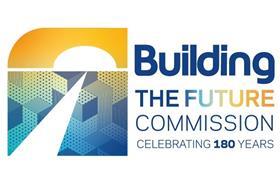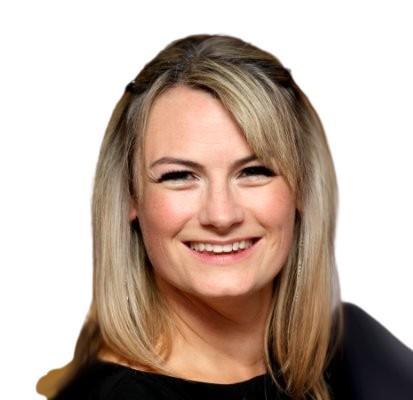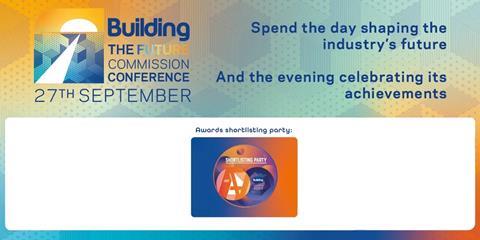The industry includes an impressive variety of roles ÔÇô but unless you are on the inside it can be hard to know how to break in, let alone progress to the top. In this new series, we talk to professionals about their often surprising career twists and turns

How long have you been working and what is your current job?
I have worked full time for about 24 years (following completion of my university degree) but generally I have worked since I was 15. Now I manage a business that provides digital and data advisory services to clients in the built environment industry.
What were your first career ambitions? (Would your 16-year-old former self be surprised at what youÔÇÖre doing now?)

I wanted to be a lawyer, having helped my mum study to be a legal executive when I was a young girl (aged 7). I loved learning about all the case law and was surprised how much of it stayed in my mind as I got older.
I loved books by John Grisham and was fascinated by films such as JFK (Kevin Costner) and A Few Good Men (Tom Cruise and Demi Moore). My 16-year-old self would indeed be very surprised by me now, and I expect confused too.
When did you first start thinking about a career in construction and why?
I didnÔÇÖt think about a career in construction ÔÇô it happened by accident, it was never on my radar. My assumptions were quite stereotypical with regards to construction, namely that itÔÇÖs all a building site.
It was only as I got into the world of consultancy that I released that construction is so much more than just the putting up of a building. ItÔÇÖs the whole lifecycle from initial thoughts and aspirations, through planning, designing, construction, handover for use and then ongoing maintenance etc.
Our buildings are living things that have so many dependencies and interconnections which make our ecosystems and our built environment work for us as we grow and evolve. They are the fabric of how we live.
This industry is constantly evolving and tackling challenges, which means it is an exciting world to work in.
Who or what helped you get where you are today?
I gained my university degree in law, followed by a Masters of Law qualification (I specialised in international criminal law). But, during my studies, I discovered that I didnÔÇÖt much like the advocacy part of law. I liked the research and figuring out what was going on and how to solve problems and fill gaps etc.
This led me into intelligence analytics for a police force, which was where I really developed an appetite for information management. I enjoy taking lots of different data sets and information which do not easily overlay and establishing ways to look at all of this as a whole and work out what it means. This really provides a holistic view of any given situation.
Understanding data and the insights that it brings are such important parts of the built environment today and this is what we do here at RLB.
Did your choice of subjects/qualifications in education help or hinder you getting a job in the sector?
Studying law helped me in several ways. It helped to define a logical way of processing and questioning information. I also had to learn a new language (if you have ever tried to read an Act of Parliament, you will know what I mean) and how this can be interpreted differently ÔÇô and mean different things to different people in different professions.
It taught me to always be objective and to look at every angle before formulating an opinion or a response or an argument or a solution. These are all skills which are transferable to so many walks of life and are particularly important in consultancy services.
Have you had to overcome any other barriers to get where you are today?
There are always barriers, but thatÔÇÖs part of the fun ÔÇô I like a challenge and they always help shape you as a person and your future decisions.
I came into the construction industry in around 2012 and a lot of the digital and innovative ways of working were seen as a threat to some roles and professions. This, understandably, puts people on edge and makes them less inclined to adjust and adapt.
Fear of the use of AI is a current topical point. People worry that it will replace their roles, as opposed to thinking about how it can help to improve or advance their roles. ThatÔÇÖs human nature.
What do you know now about the industry that you wish you knew when you were at school?
I knew nothing about construction when I was in school, nor about digital. These are things I have learnt by chance as I grew older through different experiences.
I am so pleased to see so much more focus on STEM subjects in schools, and how now we can demonstrate things of interest to the younger generation and how they can be used in construction.
The digital world is certainly making this easier ÔÇô look how gamification is being used in real life. ItÔÇÖs making it tangible for people to understand potential application.
What surprised you about the industry as a new starter?
How everything is so connected. I hadnÔÇÖt thought about it before but now I always wonder how well connected information is and how it is being used to best effect and how people are working together to make this information better. That means we can create better spaces in which to live and work.
What are the best and hardest bits of your job?
People, in both ways. I love finding ways to help people and improve things for them, and yet itÔÇÖs the journey that those people are taken on that can often be the most challenging.
For someone coming through the school system now, what advice do you have about choosing a construction-related career?
There are so many areas to the construction industry, so almost every interest you have can fit within it. DonÔÇÖt limit yourself. Do things that you love and work out where else you could apply that experience.
I thought I had limited myself to being a lawyer and did not realise that, even if I had carried on within the legal profession, I could still have worked in construction. Law forms a massive part of the industry. After all, nothing gets built without a contract being in place.
What one thing would you change to make finding a career in the built environment sector easier?
A focus on skills and interests ÔÇô and where they canbe applied ÔÇô as opposed to being industry driven would help young people to see what is out there as a career. Recognise that your options donÔÇÖt need to end with a particular subject choice.

Join the in Westminster on 27 September to hear from leading figures across the construction industry and find out more about the work of the commission.
The day will include panel debates on net zero, digital transformation and building safety as well as talks from high-profile keynote speakers on future trends and ideas that could transform the sector.
There will also be the chance to feed in your ideas to the commission and to network with other industry professionals keen to share knowledge.
On the day, we will also be announcing the winner of our Future ThinkersÔÇÖ Award, which will go to the most innovative idea submitted in our competition for professionals under 35-year-olds wanting to improve the built environment. The deadline for entries is Friday 18 August, and you can submit your entries by emailing buildingfuturecommission@building.co.uk
About the commission
The ║├╔½¤╚╔·TV the Future Commission is a 12-month project looking at radical and challenging ideas that could help transform the built environment.
The campaign aims to tap into innovative ideas, amplify them and be an agent for change.
The major projectÔÇÖs work will be guided by a panel of major figures who have signed up to help shape the commissionÔÇÖs work culminating in a report published at the end of the year.
The commissioners include figures from the world of contracting, housing development, architecture, policy-making, skills, design, place-making, infrastructure, consultancy and legal. See the full list here.
The project is looking at proposals for change in eight areas:
- Education and skills
- Housing and planning
- Energy and net zero
- Infrastructure
- ║├╔½¤╚╔·TV safety
- Project delivery and digital
- Workplace culture and leadership
- Creating communities
>> EditorÔÇÖs view: And now for something completely positive - our ║├╔½¤╚╔·TV the Future Commission
>> Click here for more about the project and the commissioners
║├╔½¤╚╔·TV the Future is also undertaking a countrywide tour of roundtable discussions with experts around the regions as part of a consultation programme in partnership with the regional arms of industry body Constructing Excellence. There is also a young personÔÇÖs advisory panel.
<img alt=ÔÇØBTFC 3x2ÔÇØ src=ÔÇØhttps://d2vhdk00tg424t.cloudfront.net/CMS/s3/ubm-library/web/b/j/s/btfc3x2_808990.jpg?w


























No comments yet